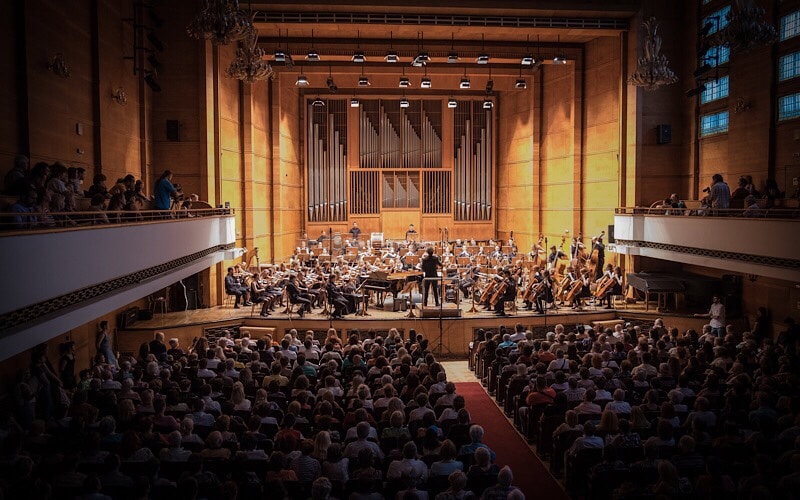Arguably, we, the people who associate ourselves with music and the piano, do play for the others.
Well, we play for the others in concerts, in classes, etc., but first and foremost, we play for ourselves. What do you think?
Since our species is mainly tribal in nature, we exert satisfaction from all kinds of external approval, such as when performing, and thus, performing for the others is considered a main component of our human predispositions. Remember that, in a way, we do constantly perform in our everyday lives; we speak in gatherings, we care of how we look, we carefully utter our thoughts, and so on and so forth. Αll this belongs to the “performing” categorization. Thus, somehow, performing should benefit us, otherwise we wouldn’t do it.
Coming to music and piano, even though you might argue that you play chiefly for your own wellbeing, or “for myself” as we normally say, ultimately, you mainly play for some different sets of ears. At the same time, playing for others makes us happy and content, and since this gives us some sort of gratification that means we also play for ourselves.
Thus, on a most basic level, this is a wonderful musical vicious circle. But, is there a definite answer to the question raised in the title of this article? I think there is. Let’s carry on.
Paraphrasing The Enlighted self-interest philosophy in ethics, one could argue that musicians who perform for the satisfaction of an audience, ultimately perform for the satisfaction of themselves. Thus, this philosophy maintains that offering something of value to the others is only approvable—at least subconsciously—if it benefits oneself. So, coming to music and simplifying the above principle, we play for the audience and benefiting them with our wonderful sound, because it benefits us first in many levels by playing to that audience. Go figure.
And then there’s this other thing; why do we play for the others, even if we know that we walk a tightrope, performing music that can sabotage our musical standing if we didn’t deliver it properly? Why we subject ourselves to the tyranny of stress and tachycardia? Do we really do this for our own benefit? Well, fortunately my incapable mind didn’t have to answer this question; a bigger, more robust mind, luckyly did it for me: The German philosopher Emmanuel Kant.
He asserted that—I’m paraphrasing—we do things not because we care if they are right or wrong, but because they fulfill, in a way, our inner urges. So, in essence, if Kant was lecturing a piano student, he would instruct him to just go for it, without caring about memory lapses, wrong notes, or approval from his peers, and just play, because this way he will satisfy his inner need of performing; and ultimately, he will be first catering to himself.
Schools of thought always maintained that the central reason of our actions is to promote our own wellbeing. And, before I continue oversimplifying the research of the great minds of this world, I would just finish this by expressing to you why I perform.
I perform for myself. At least, this is what I believe I do. I don’t do it for the others. Even if someone asks me to do it in exchange for a fee, it still benefits me in a most basic and Darwinian way, and I cannot alter that. I like what I’m doing and I feel that if my enjoyment is shared by an audience, that’s really fantastic. However, when an audience’s approval coincides with my love of performing, that’s still incidental. But what could be a better “incident” than that?
=============
Copyright (c) 31-05-2019 by Nikolaos Kokkinis
Many, many thanks to Manuel Nageli for his wonderful image used in this article. Please click the black button below for more images of the artist.


